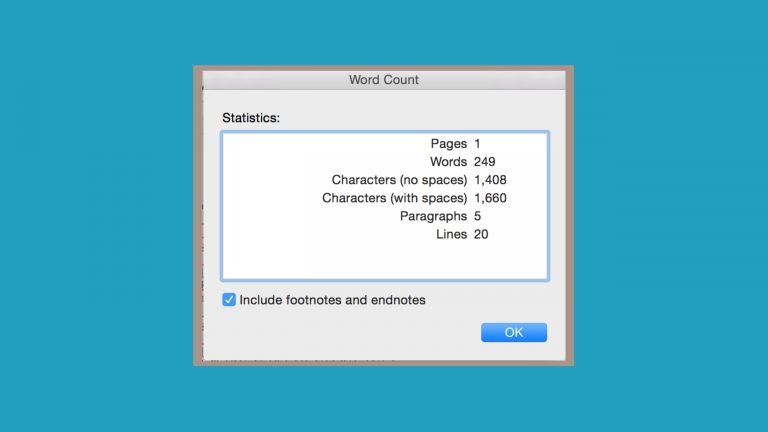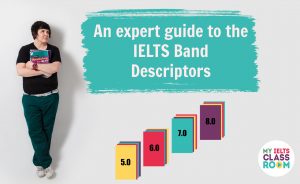
New IELTS Word Count Rules
In the past, you automatically lost points from your Task Achievement / Response score if you wrote an under-length essay, report or letter. However, from mid-2018 the automatic IELTS word count penalty was removed. There has been no official announcement of this change and the information was supposed to be sensitive. However, as many people are now discussing this on various social media platforms, I thought it was time I addresses this issue to ensure students understand what this change means.
What does the new IELTS word count rule mean for students?
Well, honestly, not very much! Nothing on your exam papers will change. The prompts will still ask you to write 150 words for Task 1 and 250 words for Task 2. And ‘short’ pieces of writing will still be penalised, but just in other ways. How? Well…….
- If you write less than the recommended word count, your ideas probably won’t be extended enough to achieve a 7.0 for Task Response / Task Achievement.
- If you run out of time and don’t write a conclusion for your essay, you will also receive a low score for Task Response and/or Coherence and Cohesion, as you probably won’t have a clear position or finished paragraphs. Click here to read my blog post about what to do if you run out of time in the exam – it could save you at least 1 band score for TR!)
- Short answers might not also contain enough language to have ” a wide range of complex sentences”, which will affect your Grammatical Range and Accuracy Score.
- In the same way, it will be hard to achieve a very high score for Lexical Resource if you don’t provide the examiner with a wide enough sample of your writing. The examiner can only give you points for the words they see on your exam paper, so make sure you write enough to show them your best vocabulary!
However, the change in the IELTS word count rules WILL mean that you no longer have to waste time counting words!!! And, if you do write a response that is only SLIGHTLY shorter than the word limit, there is a chance now that you will not be penalised in any way if you have addressed the task fully. This could make a HUGE difference to high-level students who end their essays at around 240 words.
So, if there are no longer hard and fast rules about how many words you have to write, this leads to the next question………
Want to know how the examiner will apply the band descriptors when marking your IELTS essay?
Then download a copy of our FREE e-book, which explains how each of the four marking criteria is applied and includes the most common errors made by test-takers. Just click here for your copy.

How many words should you write in the IELTS exam?
So, what makes the perfect length of an essay is an interesting question. Let’s be clear, there has NEVER been an upper-word limit in the IELTS exam (unlike other Cambridge tests). The instruction has always been:
Write at least 250 words (essays)
Write at least 150 words (report and letters)
So, if 250 and 150 were the minimum number of words, does that make them the ideal word count, or should you write more? And, if you do write more, how much more? Do more words mean a higher score?
Well, the answer is “yes and no”. On the one hand, you have to write essays that address the task fully, which requires you to extend your ideas. On the other hand, you need to have “error-free sentences” if you want to have any hope of scoring a 7.0 of higher for Grammatical Response and Accuracy (and more sentences usually means more errors!)
I have always felt that between 280 – 340 words is about right for the essay and around 180 – 200 words for the letter or report.
For me, this is the right balance between having ideas that are well-extended and having time to check your writing for errors. However, if you are a very strong student, for example, a native speaker or a student who is at C1 or C2 level, you might be able to write more than this and still have good control of your grammar and vocabulary. In this case, you could even go as high as 400 words for an essay – but this is exceptional.
As I said, for most students, the more they write, the more mistakes they make, which is why it can be a good idea to limit the length of your response. Also, long responses can become repetitive or off-topic, which will again affect your score negatively.
I always tell my students that, in IELTS, every word should add something valuable to your score – if it’s not scoring you points, it shouldn’t be on the page!!!!
IELTS MYTH – “The examiner stops reading after 300 words”.
This is total rubbish! The examiner is paid to assess every word that you write! If you want to write 1,000 the examiner would have to sit and read every one!!!! (but don’t do that!)
Find out the basics of IELTS Writing in 4.12 minutes!
🧮 What words are counted in an IELTS essay? 🧮
The general answer is ALL of them! I don’t know why, but some students don’t view articles (a / an / the) and prepositions (in / on / at / of/ etc) as “real words”, which probably explains why they forget to use them! But in the IELTS exam every “a” or “of” has the same value as a long word like “multiculturalism” or “environmental”!
Interestingly, in the past there were quite complicated rules about what counted as one word and what counted as two. For example, words with a hyphen were one (e.g self-aware = ONE), while figures and a symbol separated by a space where two (e.g. 30 % = TWO!)
However, with the new IELTS word count rules, those small differences are no longer important (which I am sure every examiner is happy about, as counting words was probably the least favourite part of their job!)
I do still think it is a good idea for students to what 250 words and 150 words look like in their handwriting on a page so that you can quickly “guesstimate” how many words you have written the exam. The best way to do this is to practice writing on the official IELTS answer booklet.
For me, 150 words is about a side and a half, and 250 is 2 and a half. Having a rough knowledge of how much you have written is still useful to make sure you are on track in the exam – unless, of course, you are sitting the IELTS computer-based test, which has a word counter!
So, as you can see, the end of the IELTS word count penalty does not mean that you can now stop worrying about the number of words you write. It is still essential to write more than 250 and 150 words to achieve a high score. If you want to know how to write essays, reports, and letters that are well-extended and satisfy the IELTS band descriptors, then join my 33-hour interactive IELTS writing course.🚀
